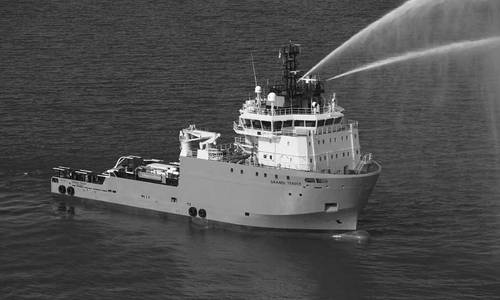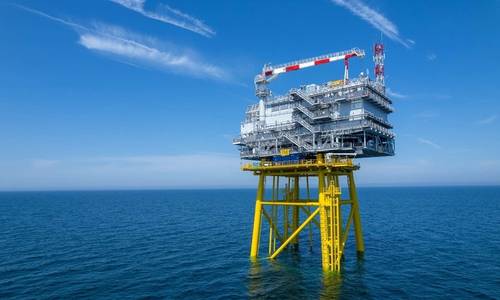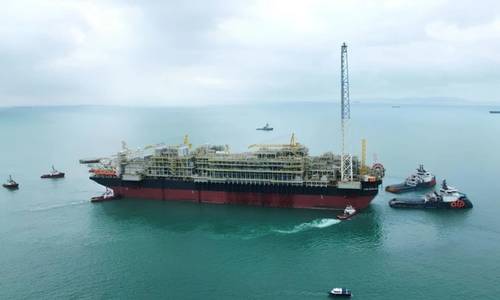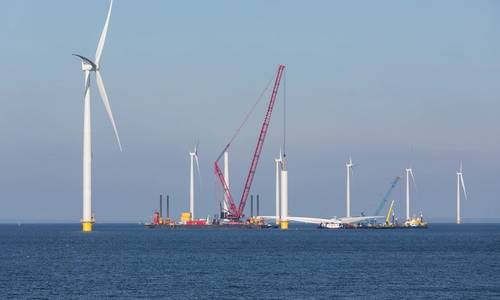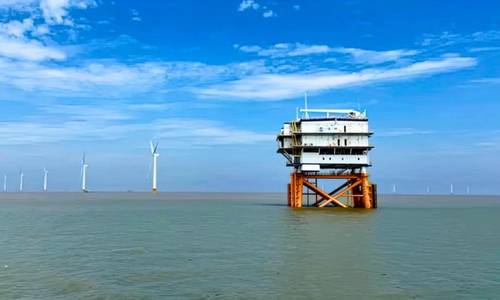Fatigue Led to OSV Striking GoM Production Platform -NTSB
January 27, 2023
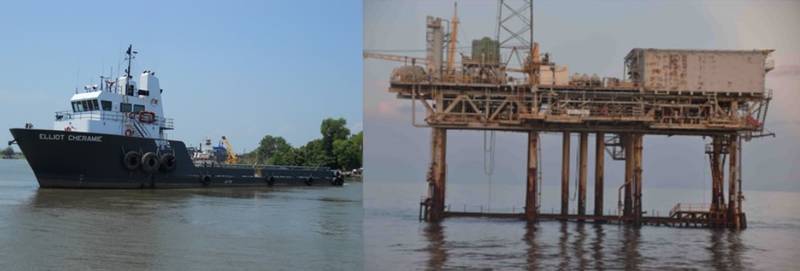
Crew fatigue led to an offshore supply vessel striking an oil and gas production platform in the Gulf of Mexico in 2021, the National Transportation Safety Board (NTSB) said Thursday.
The offshore supply vessel (OSV) Elliot Cheramie was on its normal route between Port Fourchon, La. and the oil and gas production platform VR-397A in the Gulf of Mexico on June 25, 2021, with a crew of four and five offshore workers. While transiting, the Elliot Cheramie struck the oil and gas production platform EI-259A. The contact resulted in four minor injuries and over $360,000 in damages to the vessel, platform and pipelines.
The Elliot Cheramie’s mate and deckhand were assigned the overnight watch (midnight to noon) in the wheelhouse. The mate was steering the vessel in autopilot mode following the GPS track.
The mate told investigators that he was “more tired than usual” and felt “groggy.” He stated he must have fallen asleep and when he woke up the platform was “dead ahead.” He attempted to avoid it, but the vessel struck the platform.
In the four days leading up to the contact, the Elliot Cheramie mate consistently worked for periods longer than the 12 hours recommended by the company’s Fatigue Management document. The day before the contact, the mate reported working for 17 hours with a portion of the work requiring high levels of physical exertion.
Although the deckhand set an alarm to wake himself for the watch, he slept through it and was not present in the wheelhouse at the time of contact. The deckhand’s duties would have included assisting the mate on the bridge navigation watch; however, other duties would have taken him away from the wheelhouse for extended periods of time. The company’s Safety Management System recommended crewmembers are given at least 24 hours of notice before beginning night work, but the deckhand was assigned the watch when he arrived onboard, only five hours before.
Based on the work and rest histories of the mate, the requirement in the company’s Vessel Operating Procedures that licensed personnel “may not work for more than 12 hours in a consecutive 24-hour period” was not followed.
The NTSB determined the probable cause of the contact was the company not adhering to their 12-hour work limit policy, which led to the fatigued mate falling asleep while on watch.
“In this casualty, and as the NTSB has previously noted in numerous commercial vessel casualties, crew fatigue was a significant causal and contributing factor,” the report said. “Company operational policies and requirements should incorporate and follow fatigue management best practices to ensure that crewmembers receive enough rest to adequately perform navigational, lookout, engineering, and other watch stander duties. Additionally, companies should ensure that vessels are crewed with the appropriate number of trained personnel to safely perform operations without compromising work/rest schedules of off-duty watchstanders. Companies and vessel captains should also actively monitor the watch schedules and any off-watch work performed by their crews to ensure that fatigue mitigation policies are adhered to, adjusting watch schedules accordingly for crew members at risk for fatigue.”

